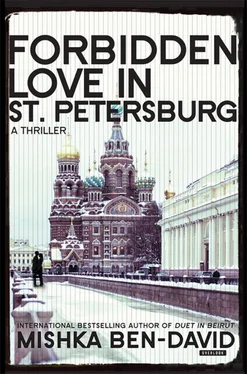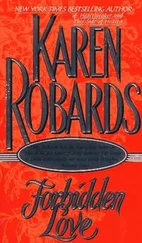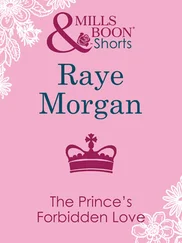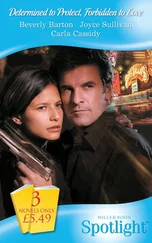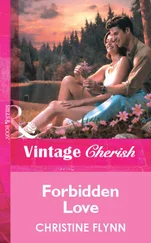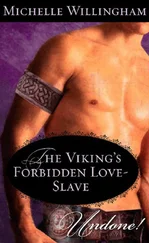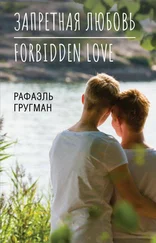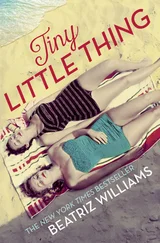On the two weekends that followed we again toured the city. Autumn’s blaze was at its height, the trees were changing colour and I was so visibly roused by the splendour of the green, yellowish, red and purple foliage, that Anna had to ask me if in Quebec trees don’t change colour. Coming to my senses and somewhat embarrassed, I explained that the sight had simply triggered feelings of nostalgia for what I’d left behind, a sentiment for which I got a big warm hug.
She showed me the romantic ‘winter canal’ and its roofed passage–between the new Hermitage and the theater–which arches over the waterway and allows one to look at the Neva, its contours reminiscent of Venice’s Bridge of Sighs.
We stood there gazing at the canal and the tour boats passing beneath us between the walls of the palace, while she continued to pepper me with allusions to the literature in which St Petersburg features so widely.
It’s true that only part of the story took place here in St Petersburg, she said. But you know what happened to the woman who wanted to live the dream, everything–the husband as well as the social status and the lover. What she got was all of its shards, became miserable and made her whole family miserable in its own way.
Even my limited literary knowledge was enough for me to understand that she was talking about quite another Anna, Anna Karenina. This was one of the novels that I read during my Tel Avivian nights of solitude after Orit and I separated. I, as it happens, had identified with entirely different characters in Tolstoy’s novel. Dolly, Kitty, and Levin, who were prepared to give up on love to keep the modest family happiness intact; ready to live with its flaws and limitations and not impose such levels of misery on others for the sake of that dream of love. As I was telling her all of this I described myself hibernating in Canada’s long, icy-cold, winter nights.
Levin was really the character in the novel who most reflected Tolstoy’s ideals, Anna said. Village and religious life. I am sure that Tolstoy was in love with Anna, but look at where he landed her–either he, or her infatuation–under the wheels of a train. And even now that train continues to speed ahead at full steam.
I couldn’t but see her words as a clear-cut warning to me about the inevitable end to our love. But family love was, after all, what I too had hoped for, with Orit, and what Anna had yearned for with Mikhail. That expectation failed us both. Perhaps the way back to that happiness has to include another tempest of love. With Anna, and despite the speeding train.
Pass through the cloud and you will see the sun again, I said to Anna, citing an old American Indian saying. She glanced to her left and right as if looking for something or as if she was afraid of someone, and then, surprisingly, gave me a snatched kiss on the mouth.
On weekday evenings we met at Vashkirova’s restaurant, ate together and then bid each other goodbye. Occasionally, at Anna’s behest, we substituted Vashkirova’s menu with that of a restaurant in the city centre. After all, Anna remarked, eating is not solely about filling the stomach. There are lots of lovely restaurants on the banks of the canals and in the main streets, so from time to time it could be nice. And it was.
We went wherever Anna’s fancy took us. Once she chose a restaurant called Chekhov, decorated in the style of an aristocrat’s 19 th-century dacha, with a piano player sitting in the middle. One Friday evening we went to the Fyodor Dostoyevsky restaurant which also tried to re-create the atmosphere of the 19 thcentury and on Friday nights offered a special dish of shellfish that didn’t satisfy me at all. I also didn’t like the round tables with white tablecloths, the chandeliers, the immaculately-dressed waiters, or the location inside the small and pricey Golden Palace hotel. There was a casino there which attracted wealthy types and the place was swarming with their security people.
We both enjoyed the Dickens, a bar-restaurant brilliantly designed to resemble an English pub with shiny mahogany tables, green and red leather couches, a display of English football club scarves on the walls, and every drink imaginable.
In the spring, when the ice in the canal has melted, we’ll go for a night cruise and watch the river’s bridges open to allow ships on the Neva to pass. It’s the most romantic sight in the world, Anna said. But I knew that for me Anna was the most romantic sight in the world and that the coming spring was the thing furthest away from my mind.
Since that cold night when I had left her apartment neither of us had brought up the subject of spending the night together. My fear that what Anna was offering was just her friendship distressed me more and more as my need for her love intensified.
I was acutely aware of the literary warning signals that Anna kept on offering–cautions that I, in fact, didn’t need. I knew, without her having to tell me, that this was a love that had no future. But now that I loved her so much I could no longer make do with a fleeting romance or with just her friendship.
The time has come for you to pay me a visit to my shop, don’t you think? Anna asked one day. I hoped that this question would be postponed for as long as possible and so delay the prospect of her visiting me in my office. Wouldn’t the bookshop have closed by the time I finish at the office?
But you’re the master of your time, aren’t you? Come in the morning, or finish early. And if you can’t, I’ll open up specially for you. What are your plans for tomorrow morning for example? she asked.
We agreed to make it a date. I found Anna’s shop without any difficulty, not far from Vashkirova’s restaurant. No wonder that that is where she goes after closing up. The shop was small and, like other neighbourhood stores, was set up in the columned portico of a residential building.
Anna welcomed me at the entrance, more animated than ever and visibly happy. I realized that up till then I’d mostly seen her in the evening and certainly never as early in the day as this. Her skin looked fresh, her cheeks were slightly flushed–make-up presumably–her lips highlighted with a red colour that suited her clothing–a tight-fitting, woollen blouse that accentuated her breasts. There was also a little light make-up around her eyes which shone with joy.
I couldn’t restrain myself from saying, you look utterly gorgeous this morning, and the excited Anna kissed me on the mouth and invited me in.
Though true that Anna herself was always neatly dressed, the order and cleanliness of the shop nonetheless surprised me. The place resembled more the neatness and spotlessness of a library than a bookshop. I made some reference to this and Anna, somewhat embarrassed, told me she’d arrived early and tidied up in honour of my visit. But what do you think? she asked in a tone of childlike expectation.
It’s cozy and warm. Just a pity that I’ll never be able to read all these books in Russian.
Though my Russian had progressed a little because of the few contacts I had in the course of my daily life, my reading skills hadn’t improved at all and my writing skills were nonexistent.
I’ll translate for you, Anna said happily, placing her arm in mine and taking me for a tour of the shelves while explaining what was on them; this is the poetry section. Pushkin, Lermontov, Mayakovsky, Yesenin, Yevtushenko, Anna Akhmatova… and quickly adding a nugget of information about each of them.
Did you know that Pushkin was killed in a duel?
No, I didn’t.
Yes, this romantic writer got involved with beautiful married women, and men got involved with his wife and it would usually end in a duel. In this contest, the last one, a French officer who’d wooed Pushkin’s wife shot him. It all echoes in Eugene Onegin , his satire on Russian society in the days of Nicholas the First.
Читать дальше
